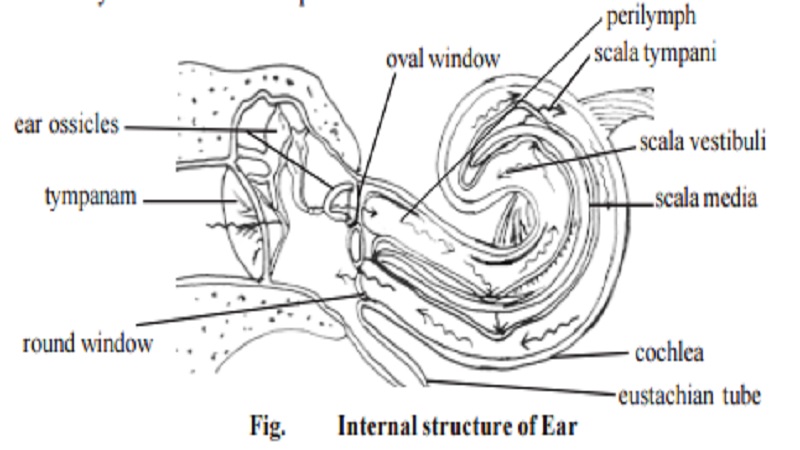Chapter: 11th 12th standard bio zoology Human Body higher secondary school
Defects of the Human ear

Defects of the Human ear
Several defects of the ear lead to hearing loss or even deafness. Hearing loss, or hearing impairment, happens when there is a problem with one or more parts of the ear or ears.
Types of Hearing Loss :- There are a few different types of hearing loss: conductive, sensory, mixed (conductive and sensory combined), and neural.
Conductive hearing loss:- This happens when there is a problem with a part of the outer or middle ear. Most kids with conductive hearing loss have a mild hearing loss and it is usually temporary because in most cases medical treatment can help.
Sensory hearing loss :- This happens when the cochlea is not working correctly because the tiny hair cells are damaged or destroyed. Depending on the loss, a person may be able to hear most sounds (although they would be muffled); only some sounds; or no sounds at all. Sensory hearing impairment is almost always permanent and the ability to talk normally may be affected.
Neural hearing loss:- This happens when there is a problem with the connection from the cochlea to the brain.
The hearing loss may be congenital or due to middle ear fluid, serious infections, such as meningitis, head injury, listening to very loud music, especially through headphones, repeated exposure to loud sounds, such as machinery.
One of the common causes of conductive hearing loss is blockade of the external auditory meatus with wax secreted from ceruminous glands in the skin lining the meatus. In some people wax accumulates in the meatus and hardens, sometimes pressing against the eardrum. Normal hearing is usually restored after the hardened wax is removed with a special syringe.
Another cause of conductive hearing loss, is a perforated eardrum. Perforation can be caused by infection in the middle ear or by mechanical injury resulting from a nearby explosion or a sudden blow to the head. Injury to the head can also cause the ossicles of the middle ear to become disconnected from one another, thus breaking the conductive path to the cochlea.
Malfunction of the cochlea and acoustic nerve can be the cause of hearing loss, even though vibrations are conducted perfectly into the inner ear. Such hearing loss is called sensorineural (perceptive) hearing loss. Acquired forms of this condition can result from infection, head injury, blast from explosions or exposure to excessive noise.
Related Topics